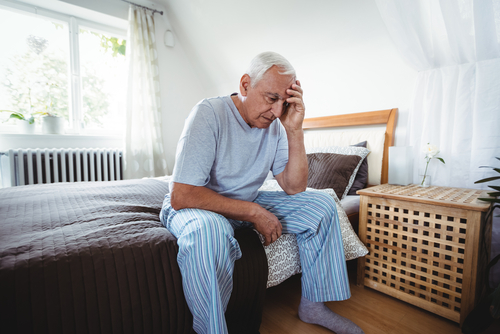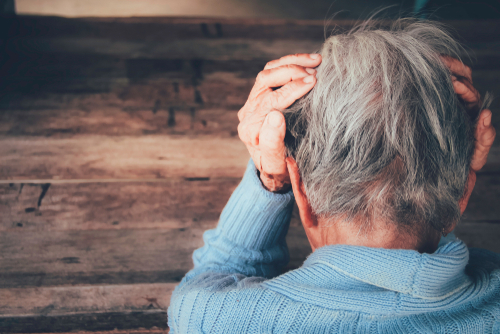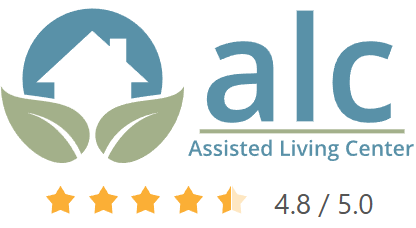As we age, we face difficulty functioning as well as we used to. This is the key reason why the elderly need emotional support and assistance with daily tasks. It is a natural process, and one of its main symptoms is memory loss.

Memory loss is frightening, both for the person experiencing it and for the people close to them. It comes as no surprise that memory loss is common in the elderly, which is one of the main reasons for the high demand for home care agencies in Beverly Hills, California. What are the leading causes of memory loss in the elderly and what can you do to slow down your elderly loved one’s memory decline?
What causes memory loss in old people?
Although memory loss is linked to dementia and Alzheimer’s, this is the worst case scenario. Memory loss is a common symptom of cognitive decline, which is normal in the process of aging. It may be caused by one of the following:
- Deteriorating hippocampus: this region of the brain is involved in forming and retrieving memories.
- Declining levels of hormones and proteins: these are responsible for stimulating neural growth and brain cell protection and repair.
- Decreased blood flow to the brain: this may lead to memory impairment and deterioration of cognitive skills.
Is memory loss normal in old age?
While memory loss can be caused by serious conditions such as dementia, memory loss and forgetfulness are a fairly normal part of growing old. A doctor should examine your elderly loved one in order to rule out dementia and determine whether they are dealing with normal age-related memory loss.
What is normal age related memory loss?
It is thought that nearly one half of the 65+ population tends to experience memory loss in some form and to some extent. Although memory loss may be caused by underlying health conditions, the memory loss that comes with the normal process of aging is referred to as age-associated memory impairment. If the doctor can rule out medical conditions as the cause of memory loss, there is no cause for concern.
However, for health and safety reasons, the elderly who experience this type of memory impairment may need assistance and supervision. Signs of normal age-related memory loss may include:
- Forgetting where you left things you use all the time
- Forgetting appointments
- Forgetting what you were just about to do, such as walking into the kitchen and not remembering why
- Forgetting people’s names
- Referring to a person by another person’s name, such as calling your daughter by your sister’s name
- Becoming easily distracted
- Forgetting details of a conversation or a piece of news
- Having difficulty retrieving information although you had it on the tip of the tongue
These are symptoms of normal forgetfulness, distractedness and memory loss only if they happen occasionally. If they happen more frequently, they may be a cause for alarm.
At what age does memory decline?
Although it was previously thought that people do not begin to lose memory sharpness and power of reasoning until the age of 60, new research shows that the beginning of memory decline can start much sooner than that. According to the latest scientific research in the field, the onset of memory loss can start as early as 45.
What is brain fog?
Brain fog can best be described as the brain’s response to certain circumstances. Brain fog is not a medical term, but it does increase the risk of developing symptoms of anxiety and depression and affects mental processes, such as memory and concentration. Common causes include:
- Sleep deprivation
- Lack of physical activity
- Stress and anxiety
- Poor diet and dehydration
Since all of the above are common in elderly living alone, these individuals are most at risk of experiencing brain fog.
What are the symptoms of brain fog?
Symptoms of brain fog include:
- loss of motivation and optimism
- chronic mental fatigue,
- difficulty concentrating,
- forgetfulness
- cognitive dysfunction
Do antidepressants help with brain fog?
Much like memory loss and brain fog, depression often affects the elderly population. If your elderly loved one is diagnosed with depression, the doctor may prescribe antidepressants to help manage the condition. Antidepressants may also be effective in treating symptoms commonly referred to as brain fog.
Team up with one of the leading home care agencies in Beverly Hills, California

At A Better Way in Homecare, we have over two decades of experience in matching the elderly in the community of Beverly Hills and all the other communities across Los Angeles County with competent and compassionate providers of home care. Whether your loved one needs assistance in the shower, a drive to the doctor’s office or some light shopping on Rodeo Drive, we can help. Reach out to us today and let us help turn your elderly loved one’s life around.








